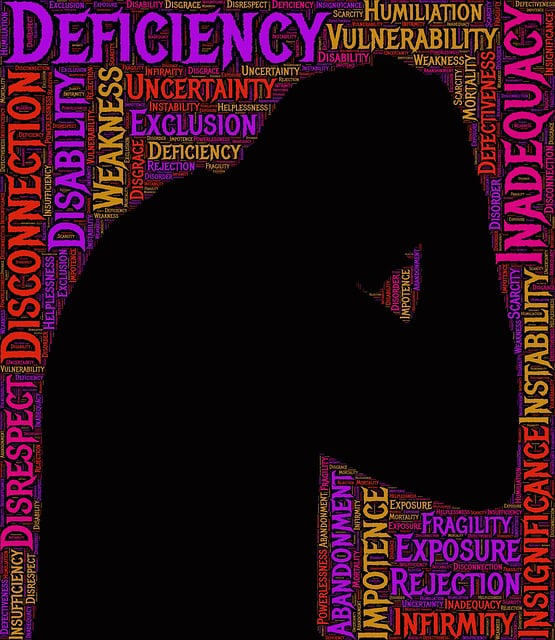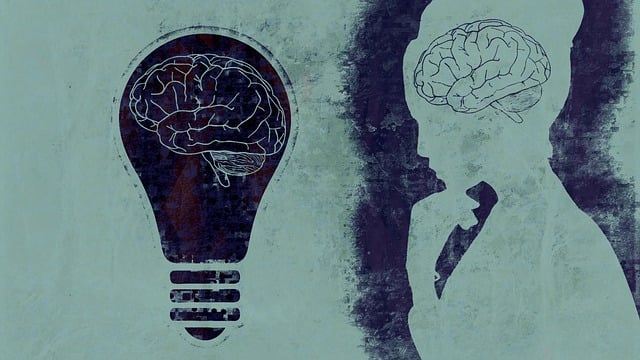Westminster Psychological Testing & Therapy is a leader in culturally sensitive mental healthcare, prioritizing inclusivity for diverse communities. They integrate cultural knowledge into treatment, respect traditional practices, and tailor techniques to specific contexts, ensuring effective and accessible Trauma Support Services. Their approach prevents professional burnout, enhances risk management, and promotes emotional healing by addressing cultural nuances, bias awareness, and continuous professional development. This holistic strategy improves patient outcomes, fosters trust, and benefits diverse communities in urban settings like Westminster.
In today’s diverse society, cultural sensitivity is paramount in mental healthcare. The article explores this crucial aspect, focusing on Westminster Psychological Testing and Therapy as a model for competent care. We examine challenges faced by professionals navigating different cultural contexts, and present strategies to enhance sensitivity. Through real-world case studies, we demonstrate successful implementations, emphasizing the importance of understanding cultural nuances to provide effective, inclusive support.
- Understanding Cultural Sensitivity in Mental Healthcare
- The Role of Westminster Psychological Testing and Therapy
- Challenges in Providing Culturally Competent Care
- Strategies for Enhancing Cultural Sensitivity Among Mental Health Professionals
- Case Studies: Successful Implementation of Cultural Sensitivity in Practice
Understanding Cultural Sensitivity in Mental Healthcare

Cultural sensitivity is a cornerstone in modern mental healthcare practice, reflecting an awareness and appreciation of diverse cultural beliefs, values, and behaviors within a therapeutic setting. It involves creating a safe and supportive environment for individuals from various ethnic, racial, religious, and socio-economic backgrounds, ensuring their unique needs are understood and addressed effectively. This nuanced approach is essential to provide culturally competent care, especially in a diverse society like the one we live in today.
At Westminster Psychological Testing & Therapy, we recognize that cultural sensitivity goes beyond surface-level understanding. It requires therapists to integrate cultural knowledge into every aspect of treatment, from initial assessment to ongoing therapy sessions. This might involve incorporating clients’ traditional healing practices, respecting familial dynamics, or tailoring therapeutic techniques to align with their specific cultural context. By doing so, we aim to offer not just mental health services but also culturally responsive support, fostering a deeper connection and ultimately enhancing the effectiveness of our interventions, as advocated for in the Mental Wellness Journaling Exercise and Self-Care Practices, while ensuring Trauma Support Services are accessible to all who need them.
The Role of Westminster Psychological Testing and Therapy

Westminster Psychological Testing and Therapy plays a pivotal role in fostering cultural sensitivity within mental healthcare. By employing evidence-based assessment tools tailored to diverse populations, they enable practitioners to gain deeper insights into clients’ psychological well-being while accounting for cultural nuances. This approach is instrumental in preventing burnout among mental health professionals, as it helps them navigate complex interpersonal dynamics more effectively.
Furthermore, Westminster’s expertise extends to emotional regulation strategies that are culturally responsive. They guide therapists in facilitating clients’ adaptive coping mechanisms while respecting and preserving their cultural identities. Integrating these practices into risk management planning for mental health professionals ensures a safer, more inclusive therapeutic environment. This, in turn, enhances the overall effectiveness of mental healthcare services.
Challenges in Providing Culturally Competent Care

Providing culturally competent care in mental healthcare is a complex endeavor, especially in diverse societies like Canada where Westminster Psychological Testing & Therapy operates. One of the primary challenges lies in understanding and respecting the vast array of cultural beliefs, values, and practices that shape individuals’ experiences of mental health issues. What may be considered normal or pathologic can vary widely across cultures, making accurate assessment and diagnosis challenging. For instance, expressions of emotion and demonstrations of distress can differ, impacting how clients present their struggles.
Cultural sensitivity requires therapists to develop high levels of emotional intelligence, enabling them to recognize and appreciate these differences. This is crucial in fostering trust and building a safe space for clients from diverse backgrounds. Additionally, therapists must be aware of their own cultural biases and how they might influence therapy. By recognizing the impact of systemic issues like racism, discrimination, and cultural erasure on mental health, Westminster Psychological Testing & Therapy can ensure that its practices promote emotional healing processes rather than perpetuate existing disparities in depression prevention and treatment outcomes.
Strategies for Enhancing Cultural Sensitivity Among Mental Health Professionals

Enhancing cultural sensitivity among mental health professionals is a multifaceted process that involves continuous learning and adaptation. One effective strategy is to prioritize cross-cultural training in educational programs, ensuring future therapists gain an understanding of diverse cultural beliefs, values, and practices related to mental health. This foundation enables them to approach each client with empathy and respect, tailoring their therapy methods accordingly.
Additionally, ongoing professional development workshops and seminars can equip practitioners with practical tools for navigating cultural nuances. Encouraging open dialogues about racial, ethnic, and socioeconomic identities within clinical settings fosters a culture of inclusivity. Such discussions also help professionals recognize implicit biases and challenge stereotypes, ensuring they provide the most effective care tailored to each individual’s unique background. These efforts contribute to improving access to quality mental healthcare services, as evidenced by successful public awareness campaigns focused on depression prevention and mood management, ultimately benefiting diverse communities in and around Westminster Psychological Testing & Therapy.
Case Studies: Successful Implementation of Cultural Sensitivity in Practice

In various settings, including urban centers like Westminster, the successful integration of cultural sensitivity into mental healthcare has been demonstrated through numerous case studies. These examples highlight how tailored approaches, informed by thorough cultural assessments, can significantly improve patient outcomes and foster trust between diverse communities and healthcare providers. For instance, a local therapy center specializing in psychological testing implemented a comprehensive training program for their staff, focusing on Healthcare Provider Cultural Competency. This initiative empowered therapists to recognize and address cultural barriers, ensuring that services were accessible and effective for all clients, regardless of their ethnic or socioeconomic backgrounds.
The impact was notable, with increased patient engagement and improved therapy retention rates among culturally diverse populations. Similarly, the development of Mental Wellness Coaching Programs has been a game-changer in promoting cultural sensitivity. These programs often incorporate elements from popular culture and traditional healing practices, creating safe spaces for clients to explore their mental wellness. As evidenced by various podcasts focusing on mental health within diverse communities, such initiatives not only educate but also build bridges between healthcare professionals and patients from different cultural walks of life, ultimately enhancing the overall effectiveness of mental healthcare services in Westminster and beyond.
Cultural sensitivity is an indispensable aspect of mental healthcare practice, as it fosters more inclusive and effective treatment. By recognizing and understanding diverse cultural beliefs and practices, mental health professionals can better address the unique needs of their clients. This article has explored various dimensions of cultural sensitivity, including its significance in mental healthcare, the role of Westminster Psychological Testing and Therapy in promoting culturally competent care, and practical strategies to enhance it. Through case studies, we’ve seen successful implementations that demonstrate how cultural sensitivity can revolutionize mental health services, ensuring every individual receives respectful, understanding, and tailored support.











